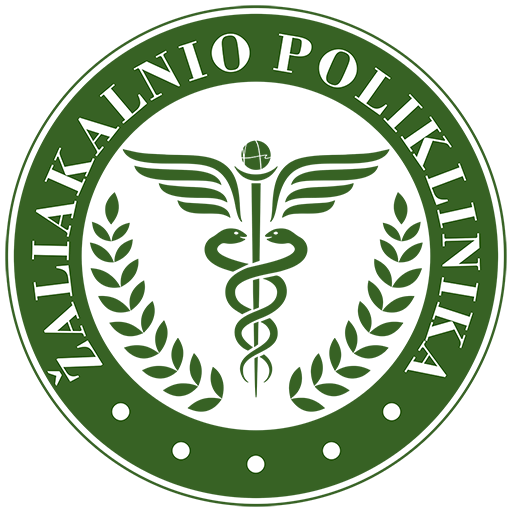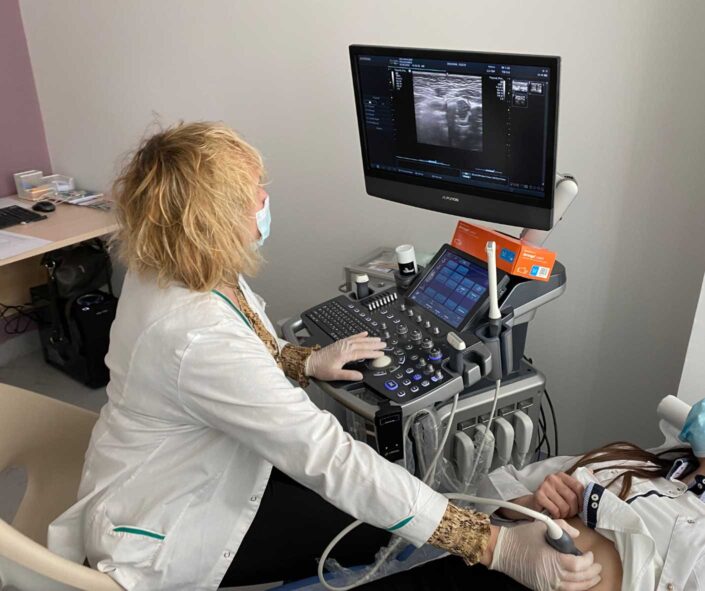If you experience unusual symptoms, don't ignore them. Seek professional help to assess your condition and, if necessary, prescribe appropriate treatment.Echoscopy is a non-invasive method of examining tissues for structural changes using ultrasound (echoscope).
Echoscopic examinations are carried out at Žaliakalnis Polyclinic:
- Comprehensive echocardiogram for women (thyroid, breasts, liver, gallbladder, pancreas, spleen, kidneys, bladder, aorta)
- Comprehensive echocardiogram for men (thyroid, liver, gallbladder, pancreas, spleen, kidneys, bladder, aorta and prostate)
- Abdominal ultrasound (liver, gallbladder, pancreas, spleen, kidney, bladder, aorta)
- Hepatopancreatic echocardiography (liver, gallbladder)
- Urological system echoscopy (kidney, bladder, adrenal glands)
- Urological system echocardiography with a pyloric transducer (kidneys, bladder, adrenal glands, prostate, residual urine)
- Comprehensive echocardiography of the urological system with abdominal and cavernous transducers (kidneys, adrenal glands, bladder, prostate, testis, residual urine)
- Thyroid and cervical lymph node echoscopy
- Breast and axillary lymph node echoscopy
- Single joint echoscopy
- Echocardiography of two joints
- Three-joint echoscopy
- Echocardiography of a single small mass
- Fetal echoscopy with echograms (not advanced)
- Echocardiography of the veins in one leg (or arm)
- Gynaecological echoscopy with a transducer
- Ovulation tracking
- Single-organ echoscopy
If you need an ultrasound scan, you can book an appointment at the Žaliakalnis polyclinic.
How to prepare for an ultrasound:
How ultrasound is performed:
Depending on which area of the ultrasound is being performed, the doctor will ask you to cover up the part of your body in question (for example, to remove your upper body clothes for an abdominal ultrasound). The doctor performing the test will apply a special water-based gel to your skin to help the ultrasound waves propagate.
The transducer sends out high-frequency sound waves (the human ear does not normally hear this sound). The waves are reflected (i.e. echoed) when they hit a dense object such as an organ or bone. The echo of these reflected waves is transformed into an image on a monitor, which is observed and interpreted by the doctor.
After echoscopy:
Your doctor will inform you of the results of the test immediately after the echocardiogram. If any structural organ abnormalities are detected, you may need to undergo additional diagnostic tests, such as a computed tomography (CT) scan, magnetic resonance imaging (MRI), or a specialist consultation may be recommended.
With a referral from your family doctor, echoscopies are free




